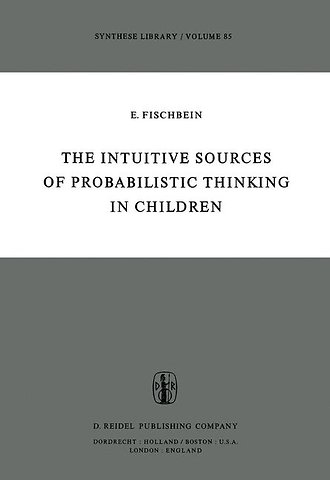The Intuitive Sources of Probabilistic Thinking in Children
Gebonden Engels 1975 1975e druk 9789027706263Samenvatting
About a year ago I promised my friend Fischbein a preface to his book of which I knew the French manuscript. Now with the printer's proofs under my eyes I like the book even better than I did then, because of, and influenced by, new experiences in the meantime, and fresh thoughts that crossed my mind. Have I been influenced by what I remembered from the manuscript? If so, it must have happened unconsciously. But of course, what struck me in this work a year ago, struck a responsive chord in my own mind. In the past, mathematics teaching theory has strongly been influenced by a view on mathematics as a heap of concepts, and on learning mathematics as concepts attainment. Mathematics teaching practice has been jeopardised by this theoretical approach, which in its most dangerous form expresses itself as a radical atomism. To concepts attainment Fischbein opposes acquisition of intuitions. In my own publications I avoided the word "intuition" because of the variety of its meanings across languages. For some time I have used the term "constitution of mathematical objects", which I think means the same as Fischbein's "acquisition of intuitions" - indeed as I view it, constituting a mental object precedes its conceptualising, and under this viewpoint I tried to observe mathematical activities of young children.
Specificaties
Lezersrecensies
Inhoudsopgave
Anderen die dit kochten, kochten ook
Rubrieken
- advisering
- algemeen management
- coaching en trainen
- communicatie en media
- economie
- financieel management
- inkoop en logistiek
- internet en social media
- it-management / ict
- juridisch
- leiderschap
- marketing
- mens en maatschappij
- non-profit
- ondernemen
- organisatiekunde
- personal finance
- personeelsmanagement
- persoonlijke effectiviteit
- projectmanagement
- psychologie
- reclame en verkoop
- strategisch management
- verandermanagement
- werk en loopbaan







